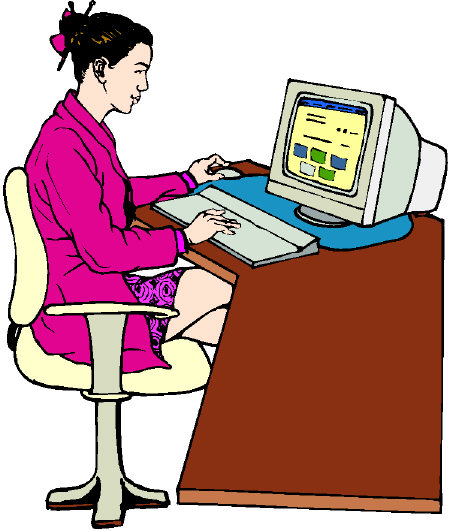To link to this article from your blog or webpage, copy and paste the url below into your blog or homepage.
Home Relocation to Form Microcommunities (MCs)
What Is An MC? MC stands for microcommunity. It refers to an intentional subcommunity whose setting is a normally-structured block-house neighborhood (or partial neighborhood; e.g., six homes) or apartment neighborhood (e.g., one floor or one partial floor) that contains from 10 to 40 people who’ve intentionally computer-selected their members for great compatibility and relocated to this MC. MC relocations, then, are simply positive actions in which people attempt to establish the preconditions for a close-knit, viable community, moral and ethical and psychological growth, self-actualization, family-actualization, community-actualization, solidarity and connectedness. People will be picky about whom they form MCs with. This is not only wise—it's essential. MCs are not fly-by-night commitments. Many will end up as lifelong commitments, not to be taken lightly. You need to feel okay about them caregiving your kids and/or elders, and vice versa. And that's why they are computer-selected so the pool of possibilities is large.

Registering for MC search and match
You're probably thinking how difficult and inconvenient it is to relocate. Yes and no. The best-case scenario is a big city where the relocation does not involve leaving jobs or friends. Instead, the commute changes and the friends have to drive, walk, or mass transit to a different area of the city. Even though in small towns the chances of you locating (with Register for MC Search and Match) extremely compatible people to be in an MC with are tiny, in a big city they're good. There are so many possible choices. Over half the population of our country lives in the suburbs, a third live in urban areas, and only a sixth live in the rural areas. And in 2010, 15 million U.S. housing units (11.4 percent) were vacant, so there are plenty of unoccupied places to move to.
You ask: WHY Register for MC Search and Match?. You'll know after reading "WHY Register for MC Search and Match?" and checking out all the drawings of MCs and then reading The Forest Through The Trees.

In 2010, 15 million U.S. housing units (11.4 percent) were vacant
Anyway, the best-case scenario is several families moving in a big city with accompanying commute changes, but no need for job or "casual friends" changes. You will have new neighbors—your MC will contain the best friends you have ever had. You may miss your old neighbors, but nothing stops you from contacting them or visiting them or vice versa. There's even a chance that you need not move, and that all new MC members relocate to your neighborhood since many houses happened to be for sale. There's also a chance that you are very compatible with one or more of your current neighbors and you both stay put or relocate to the same MC elsewhere in the city. There's even a chance you can talk one of your current neighbors into moving by doing the work of finding them a location they prefer to their current one—present an offer too good to pass up.
There's more on the relocation issue on the F.A.Q. page.
We know that unfilled jobs exist almost everywhere but good jobs, like great applicants, are precious—they don't grow on trees. We're quite familiar with jobs going begging simply because no one can be found that is qualified— no one has the right skill set. (5 million jobs will go unfilled by 2020, report predicts, Joe McKendrick, SmartPlanet, 2013)

5 million jobs will go unfilled by 2020, and many are high-tech jobs that get filled by foreigners since Americans haven't got the needed skills or training
In our business experience many applicants applied, but what they offered were needs, wants, wishes—not qualifications for the job they applied for. After many hundreds of interviews, most applicants didn’t come close to qualifying, whether it was for a programming position or for marketing. Only a tiny percent of applicants had any relevant experience or qualifications. Applicants were often so naïve that they believed that studying in college was a qualification; some even considered studying to be “experience.” We found that good candidates get snapped up quickly and then stay in their jobs. AND we also found that many of the people with the most advanced degrees were the worst employees. It’s amazing that businesses can succeed when the quality of the employee pool is so weak.

In our experience, many of the people with the most advanced degrees were the worst workers
What the above adds up to is that people relocating in a city will encounter no job issues if they are good workers, as long as their job or their company didn't head for Mexico or go belly-up. Other than that, only poor workers will have longterm problems.
What kinds of people, besides those in big cities, have the least difficulty in the relocation area? Those that have jobs that can be done at home or those that can be done via telecommuting from home—they can move to an MC anywhere in the country with no effect on their job. The following list contains only jobs that can be done from home and sometimes this is allowed; however, many employers will insist you work at the jobsite so they can more easily monitor your work activities. If you are self-employed, this is not a concern.
- Freelance artists, many of whom can work anywhere (unlike most commercial artists, who are often tied to a certain company)
- Waitresses, since their skills transfer so easily
- Exotic dancers, since their skills transfer so easily
- Websight designer, programmer, and webmaster, since their skills transfer so easily,
- Businesses like American Express, Amazon, United Health and Aetna are some of many realizing that hiring more virtual ("anywhere") workers gives them access to millions of potential candidates rather than the hundred or so within a 50-mile radius. (Source: The Best-Paying Jobs You Can Do From Anywhere, Forbes, 2012)
- Accountant / Bookkeeper
- Coach
- Course Developer
- Editor
- Education/Admissions
- Claims Adjusters
- Insurance, Corporate
- Data entry
- Medical Coders
- Online juror
- Online tutor
- Franchise owner
- Travel agent.
- Ads quality raters
- Graphic Designer
- Marketer and Public Relations (PR)
- Online Community Manager
- Product Sales
- Publisher
- Recruiter / Human Resources (HR)
- Sales / Telemarketer
- SEM and SEO
- Teacher / Professor
- Tech Support
- Video Producer and Editor
- Virtual assistant
- Writer
- Teleradiologists
- Telepharmacists
- Telenurses
- Technical Writers
- Online Post-Secondary Teachers
- Translators
- Phone Sex Operators
- Virtual Tax Preparers
- Medical Transcriptionists
- Customer Service Representatives (Source for this and the 9 previous entries: 10 Top-Paying Virtual Jobs, Forbes, 2013; Source for most of the remaining entries: Global Work-at-Home Jobs, About.com, Laureen Miles Brunelli)

A telecommuting work-at-home job
In his 1997 book Bold New World: The Essential Road Map to the 21st Century, William Knoke says that in the future we will be a Placeless Society where near equals far, and there will be no future for hierarchies, but a glorious future for networks, which render place irrelevant. Networked to companies, home workers and telecommuters' job performance will be relevant, but their actual location irrelevant. In 2013, we seem to have arrived at Knoke's future ahead of schedule. And that's a very good thing for relocators, job hunters, telecommuters and home workers. This all makes relocating to be in an MC much easier than it could have been, and the 15 million vacant U.S. housing units currently (in 2013) makes it easier still. If you can keep your job even though you will be moving to a distant city or town, you're one of the fortunate beneficiaries of the Third Wave placeless society predicted and championed by Knoke. Then the only thing left to deal with is the neighborhood in which you're creating an MC. See Links to Drawings of Various Microcommunity (MC) Configurations.
There are as many ways to solve the access issue as there are people with imaginations. Your MC aspirants may reserve a group of proximate condos, apartments, housing development units, RV park spaces, etc. Your MC aspirants may move to a block neighborhood over a period of a few years. (In 2010, 37.5 million people 1 year and older changed residences in the U.S. within the past year, according to the Census Bureau. At 12.5 percent in 2010, the mover rate was not statistically different from 2009.) You can take advantage of the 15 million vacant U.S. housing units by finding neighborhoods with the most vacancies to begin with. Young people move more than older people so starting in a young neighborhood will get you the most neighbor turnover. People move to go to college, the Armed Services, or a new job, or they move in or out of parents' houses, or elders move into relatives' houses. People move to retire or find cheaper or more expensive (better) housing or a different style of housing (gated community, assisted living, condo, RV park, apartment, block house, hotel, motel, row house, or cohousing). They move because someone (MC aspirants?) finds them a better place nearby that they find too hard to resist. Perhaps they were very fond of the community but not fond of their neighbors. This happens a lot.

Unchosen neighbors





